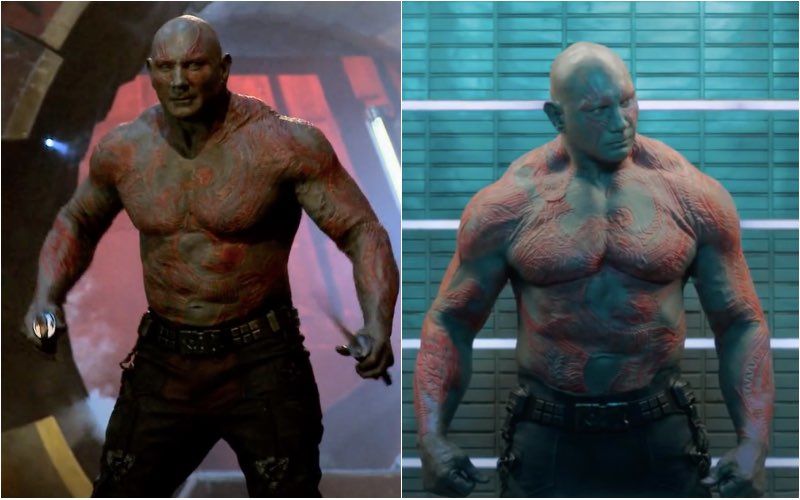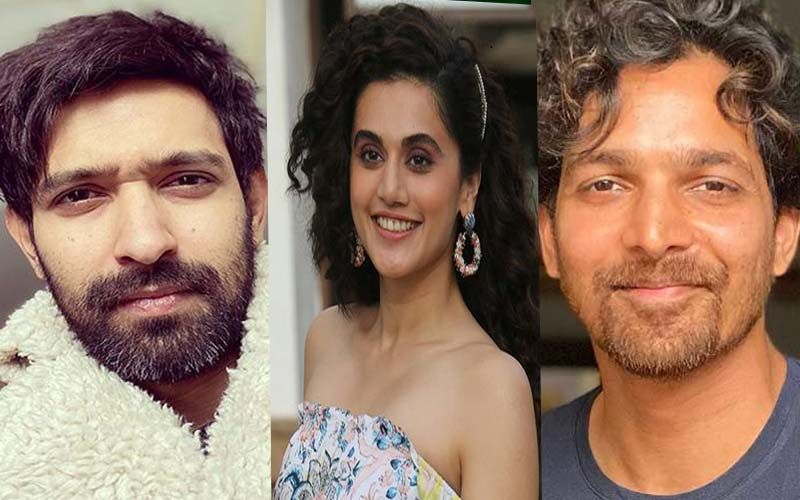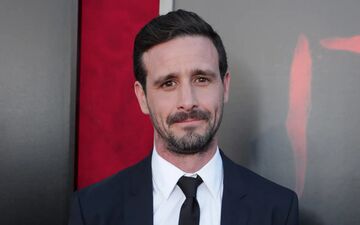Evaru And Love Per Square Feet - Two Films On OTT That Are Worth Checking Out
Here are two films on OTT that you might have missed
_2021-9-25-3-36-26_thumbnail.jpg)
Evaru (Amazon Prime Video): No matter how cynical you are about suspense thrillers, the end-twist in Evaru (which very appropriately means ‘Who Are you’) will leave you stunned to the core. Frankly, I never saw that concluding finale coming. It is a measure of the very adventurous Adivi Sesh’s derring-do that he plunges into the thriller genre once again after the fabulous Kshanam (remade into Hindi as the awful Baaghi 2) and Goodachari and he still succeeds beyond all expectations in creating a whodunit that stays a step ahead of the audience even if you have seen the Spanish film The Invisible Guest and its faithful Hindi remake Badla last year. Evaru makes bold departure from the original and yet remains faithful to the original content about an unfaithful woman. This is a masked treatise on marital discontent gone horribly awry. Adivi Sesh plays the kind of seedy greedy cop whose incongruous suaveness would make your blood crawl. He is sent to pre-empt murder accused Regina Cassandra’s grilling in the courtroom…Something like, what would you say if the Judge throws this accusation at you. Second-guessing never seemed so seductive. The verbose exchanges between Vikram (Adivi) and Sameera (Regina) are fraught with smothered fury. You know there is something building up here which is far more explosive than a woman pretending to be a Hithcockian heroine when her avaricious aspirations are way too low to hit the graceful indiscretions of a classic murder victim. It is hard not to be sucked into the world of crime and infidelity that director Venkat Ramji creates out of the original Spanish film, which I felt was felled by its own self-righteous anger. Significantly and perhaps conveniently, Evaru builds a case for Sameera’s infidelity by showing her husband to be gay. This may initially seem like a cop-out in more ways than one, what with the cop-hero outing the gay husband in Sameera’s loveless marriage. But then the plot constructs into a kind of hurling spiral that leaves you with no room to judge the female protagonist kindly or unkindly. Think Tapsee in Badlaa. That’s Regina Cassandra, icily self-motivated shrugging off her moral responsibilities towards her loveless marital arrangement as she plunges into an extra-marital relationship with the seemingly amoral Ashok (played with deliberate brimming-at-the-top volatility by Naveen Andrews which is far more effective than Tony Luke’s whiny infidelity on Badla). But it’s Adivi Sesh whose quietly projected cockiness spreads itself outwards in the plot creating a climate of ominous anxiety, never quite expressed openly until the end when the final twist implodes onto the screenplay in a way I’ve not seen happening in any Indian thriller. Indeed Evaru is the smartest thriller in recent times comparable only with the Hindi Andha Dhun where the hero made us feel he could or couldn’t see, depending on what he wanted or didn’t want to see. In Evaru Adivi’s Vikram sees everything. We don’t. It takes us time to see what Vikram does. The moment of recognition is so stunning that the light will blind you. Go, experience the thrill of watching a suspense drama that is at once stylish and persuasive.
Love Per Square Feet (Netflix): Not too many people write love letters these days. So let’s celebrate this love letter from actor-turned-director Anand Tiwari to Basu Chatterjee. Tiwari’s Love per Square Footfalls in the space of those bitter-sweet dramas about the housing space that we saw in the 1970s. You know, Basu Chatterjee Piya Ka Ghar, Bhim Sain’s Garonda, Rajinder Singh Bedi’s Dastak. This is Basu Chatterjee’s universe unplugged, updated and remixed, of train commuters, auto riders and bus travellers falling in love on the road. With lot of sex, rather, sexy suggestions of sex, thrown in. In one sequence when Vicky Kaushal’s Sanjay Chaturvedi is close-dancing Angira Dhar’s Karina she refers to the stir in his pelvis region. As he mumbles his explanation his phone in his pocket rings. She meant that only. What else could it be. Quirkily captivating Love Per Square Foot has an endearing cast of charming actors who plunge into the plot in pursuit of a space where one can pitch the tent of one’s post-tenancy dreams. There is an edge of desperation in Sanjay Chaturvedi and Karina d’Souza’s decision to form a marital alliance in order to procure a joint housing loan. Vicky Kaushal, who is rapidly occupying the space for the working-class hero where Ayushmann Khurrana already has a hold, is every inch Sanjay who wants nothing more than a home of his own away from his well-meaning but annoying parents. Newcomer Angira Dhar has a Zarina Wahab/Vidya Sinha kind of casual grace to her personality. The couple’s journey from self-interest to love is well-charted, though portions of the narrative are enveloped in an uneasy uncertainty. But then there is Sanjay’s predatory female boss, played with lip-smacking, nail-clawing, lipgloss-melting relish by Alankrita Sahai. In the way she attacks her employee’s pelvic premises in her office, this woman is clearly a Harvey Weinstein in the making. Truly entertaining if somewhat alarming in her naked self-absorption. But the film and its enchanting narrative propensity clearly favour the older actors. Raghubir Yadav as Vicky Kaushal’s bathroom-singer of a father is delightful, as is Supriya Pathak as his doting devoted wife. And Ratna Pathak Shah as the leading lady’s harried Catholic mother with her anxieties and biases brings the house down. The film’s most likeable sequence has Ratna visiting Raghubir and Supriya to fix up her daughter’s wedding. To entertain his future samdhan, Raghubir bursts into Yeh nayan darey darey on the harmonium. Ratna is enchanted. “I’ve heard your voice before…were you on radio?” This is where we get to know that Raghubir was an announcer on a railway station. In Love Per Square Foot dreams come a long way from their origin in the City Of Dreams as we get to know characters whom we’ve met, or have seen on the road in passing, or probably heard talking across a thin wall in a cheap hotel room. Admirably no one in this film about defeated dreams wastes time feeling sorry for him or herself. These are people on the go…never mind where they’re going. At one point in the story, Karina drops in unannounced at Sanjay’s house. “Could we sneak into your room?” she whispers at his door. “I don’t have a room,” he smiles with a gleam in his eyes that could be tears. But it is not. Who has the time to cry when the real-estate agent waits with the key to your kingdom?
Image source: Amazon, Imdb



